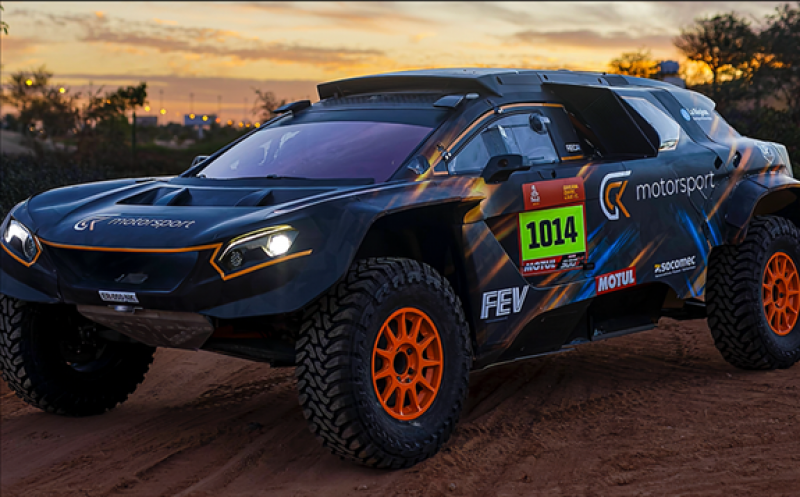The Dakar Rally is making a big push to feature alternatively-powered vehicles in the iconic competition. This year has Audi debuting the Dakar’s first electric entrant while the truck class has hydrogen and hybrid vehicles for the first time. 2022 is just the first step of this push. During the rest day at this year’s Dakar, GCK Motorsport unveiled the hydrogen prototype it intends to enter in the car class in 2024.

The GCK e-Blast H2 will produce 429 horsepower (320 kW) from an electric motor powered by a hydrogen fuel cell. The fuel cell will hold 66 pounds (30 kg) of pressurized hydrogen stored at over 10,000 pounds per square inch. The prototype will also feature a 50 kWh lithium-ion battery primarily to serve as an anti-lag device to counteract the slow responsiveness of hydrogen fuel cells.
In a statement, GCK Motorsport CEO Eric Boudot said:
“We are very proud to be presenting the first ever hydrogen cross-country competition car with an integrated fuel cell. GCK Motorsport’s involvement in some of the most gruelling and varied motorsport events globally provides an ideal platform and innovation lab for Green Corp Konnection to further develop and create industry-leading greener technological solutions. We are incredibly excited to see our involvement in the #DakarFuture movement evolve, and to create more milestones on the road to greener motorsport solutions.”
The team hopes the prototype will race across 155 special stage miles solely on green energy. Of the 2022 Dakar Rally stages, only the prologue and final stage are shorter than 155 miles. The electric Audi RS Q e-tron is currently using a turbocharged 2-liter inline-4 cylinder engine as a range extender during this year’s Dakar, so it will be possible for the e-Blast to find a method of reaching stage finishes. Hopefully, the GCK e-Blast H2 won’t just be limping across the line but be competitive.